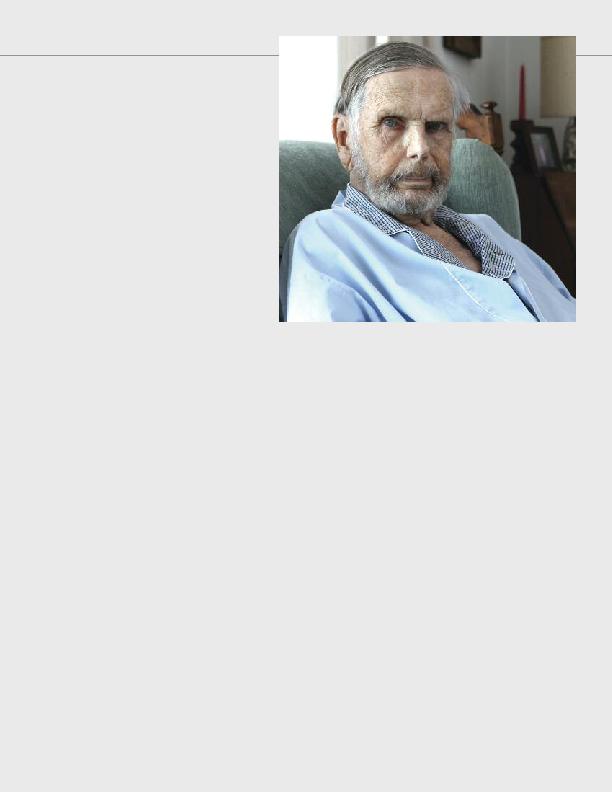
Darrell / 1938
ancestry, but that's exactly what happened to alum
owen Darrell (1938) when he began investigating
Bermuda's founder, Sir George Somers.
Society--the year Bermuda celebrated the 350th
anniversary of the Sea Venture's storm-wracked
arrival. So began 15 years of research that led him
to the hallowed British Museum's Reading Room
and later to Somers' birthplace in Lyme Regis.
both sailed on expeditions with Sir Walter
Raleigh--Darell to Cadiz, and Somers to the
Azores. Furthermore, as Somers was knighted only
the day before fellow court member Sir Mar-
maduke at Whitehall, the two men would have
most certainly known each other.
A second edition was published in 2006 to support
the St. George's Foundation.
Bay Road, Pembroke, he attended primary and
secondary school at Saltus--just a mile's walk from
his home. He recalls the western part of the School
grounds was at that time used for grazing the
caretaker's cow! Saltus had fewer than 200 students
in those days and followed the curriculum and
sports of a comparable English day school.
followed by Englishman Bobby Booker--who
was still in charge when owen left in 1938 for
Cheltenham College, England. He himself was
awarded the prestigious Rhodes Scholarship in
1940, and attended Magdalen College, oxford
from 194041 and again from 194648. He
spent the intervening years serving in the
Second World War.
northern Russia. It was through Murmansk that
the Allies supplied Stalin with war material to
endured enemy torpedo attacks--one left pieces of
shrapnel lodged in his ditty bag--extreme weather
conditions, and even a nasty case of the mumps
which saw him hospitalised in mainland Russia.
Ironically, when the war ended, he learned he
wasn't the only Bermudian serving in Murmansk;
fellow Saltus alum Francis "Goose" Gosling was
there with the RAF. owen wrote up his reminis-
cences of that period for the official publication of
the North Russia Club in 2002.
owen returned to oxford and earned a BA and
MA with second-class honours in Philosophy,
Politics and Economics. In 1947, he met his wife-
to-be aboard a train in Switzerland. A year later
they were married.
insurance giant American International Company
until 1971. Later, he became company secretary
and manager for Michelin Investment Holding
Company, until retirement in early 2002.
commemorative medal from Russia for his service
on the Murmansk Run, one of the most dangerous
voyages of the conflict.
George
Somers
linked to
his own
ancestor'
A